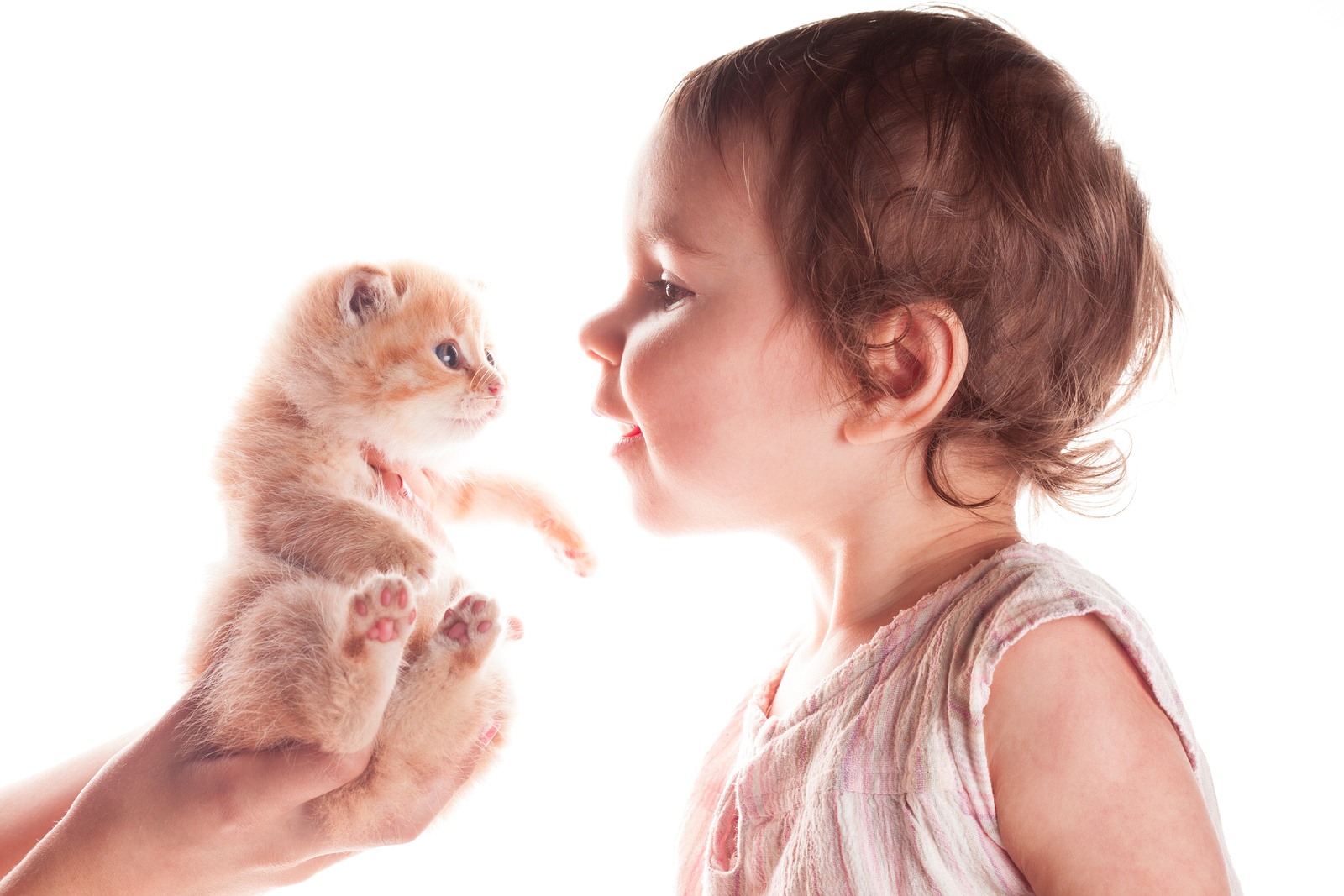Kids and Pets: Headache or Heartwarming?

You are afraid that a pet might hurt your child by biting or scratching or that your pet’s fur will cause your baby to develop allergies or even asthma. Yet, kids and pets need not be mutually exclusive – learn how to get the balance right.
Behavioural Issues
It is entirely possible that a pet can hurt a child. However, we must temper this possibility with an understanding that this is due to the pet feeling threatened – it might be acting out of self-defence. If the pet and child are introduced in the right way, however, this is extremely unlikely to happen.
Firstly, there should always be parental supervision and a child should never be left alone with a pet. If your pet is already part of the household when a baby is expected, begin by introducing the pet from the beginning. Animals can sense change – preparing a baby room or seeing changes in the mother’s body, for example – all these can cause uneasiness on their part. A loyal pet may even get jealous and express this through destructive behaviour.
To prevent this, make sure that your pet is included in the process and hence providing it reassurance. Before bringing a newborn baby home, introduce your pet to a garment or blanket with your baby’s scent on it.
If your kid is a toddler, do note that his or her crawling, flailing or even falling on the pet might confuse your “furkid” and even cause negative consequences. To solve this, teach your toddler to handle your furball with respect or set up separate areas for them till them get used to each other’s presence and actions. With supervision, you can even allow them to play games together such as kicking a soft fabric ball and rewarding your pet when it has fun with your kid gently.
Health Issues
Pet fur and animal saliva can trigger allergic reactions or asthmatic attacks in those who already suffer these conditions. However, being in contact with pets alone does not necessarily create these conditions, which are usually hereditary. In fact, many experts believe that if children are exposed to allergens from a young age, they are more likely to develop resistance. As such, with a through understanding of your kid’s medical history, having a pet should not pose extra risks.Set featured image
The most basic act of washing hands can also go a long way in preventing bacteria or diseases transmitting to your kids from your furry friends, especially in the cases of handling food preparation or pet toilets. If one keeps your pet clean and disease-free, for example with regular baths, check-ups and vaccinations, it should not pose a risk to children.
All in all, your kids – be they the human or furry kind – will get along with the proper training and understanding for their needs. Who knows, you just might find them playing together in no time!








